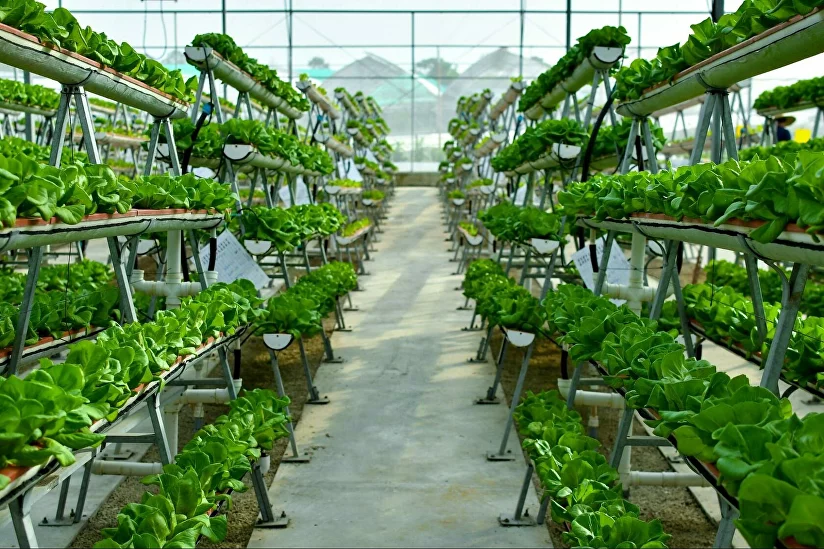
farming systems.jpg

Farming Systems
Definition:
Farming systems encompass the diverse methods and practices employed by agricultural producers to cultivate crops, raise livestock, and manage natural resources within a specific socio-economic and environmental context. These systems integrate various elements such as land use, cropping patterns, livestock management, and technological inputs to optimize production efficiency and achieve sustainable outcomes.
Types of Farming Systems:
- Subsistence Farming: Small-scale agricultural systems primarily focused on meeting the food and livelihood needs of farming households. Subsistence farmers often utilize traditional methods and limited resources, with production primarily for self-consumption.Evidence: According to the Food and Agriculture Organization (FAO), approximately 80% of farms worldwide are classified as subsistence farms, supporting the livelihoods of over 2.5 billion people.
- Commercial Farming: Large-scale agricultural operations geared towards profit generation and market-oriented production. Commercial farmers employ modern technologies, mechanization, and agrochemical inputs to maximize yields and profitability.Evidence: Research published in Agricultural Economics highlights the significant contribution of commercial farming to global food supply chains and economic development, particularly in regions with favorable agro-climatic conditions.
- Mixed Farming: Integrated farming systems that combine crop cultivation with livestock rearing to optimize resource utilization and diversify income streams. Mixed farming enhances nutrient cycling, soil fertility, and resilience to market fluctuations.Evidence: A meta-analysis published in the Journal of Agricultural Science demonstrates that mixed farming systems outperform monoculture systems in terms of productivity, profitability, and environmental sustainability.
Sustainability and Resilience:
- Agroecology: Promoting agroecological principles such as biodiversity conservation, organic farming, and ecological intensification fosters resilient farming systems that enhance ecosystem services and reduce dependency on external inputs.
- Climate-smart Agriculture: Implementing climate-smart practices such as conservation agriculture, agroforestry, and water harvesting helps farming systems adapt to climate variability and mitigate greenhouse gas emissions.
- Participatory Approaches: Engaging farmers in participatory research and extension activities fosters knowledge sharing, innovation, and adaptive capacity, empowering farming communities to address challenges and seize opportunities.
In summary, farming systems play a pivotal role in shaping agricultural landscapes and livelihoods worldwide. By embracing diverse approaches and integrating sustainable practices, farmers can enhance productivity, resilience, and socio-economic well-being across farming systems.
Fall off the barn roof and busted your keister? Life on the farm or ranch can be tough on the bum. Need a break? Laugh it off at FarmerCowboy.com, the #1 farm humor site. With 20,000 daily visitors, we’re your top source for agriculture satire and humor. Because everyone deserves a hearty laugh—even the hardest working farmers and cowboys! Join us and turn those long days into fun tales at FarmerCowboy.com.
Originally posted 2013-03-14 03:30:01.
Originally posted 2024-06-26 07:43:51.
Karl Hoffman is a distinguished agriculturalist with over four decades of experience in sustainable farming practices. He holds a Ph.D. in Agronomy from Cornell University and has made significant contributions as a professor at Iowa State University. Hoffman’s groundbreaking research on integrated pest management and soil health has revolutionized modern agriculture. As a respected farm journalist, his column “Field Notes with Karl Hoffman” and his blog “The Modern Farmer” provide insightful, practical advice to a global audience. Hoffman’s work with the USDA and the United Nations FAO has enhanced food security worldwide. His awards include the USDA’s Distinguished Service Award and the World Food Prize, reflecting his profound impact on agriculture and sustainability.



